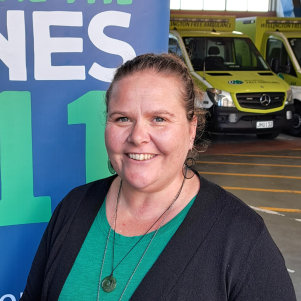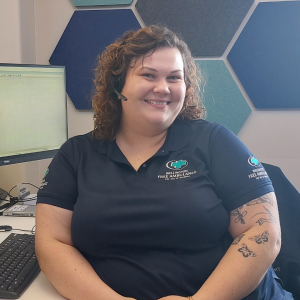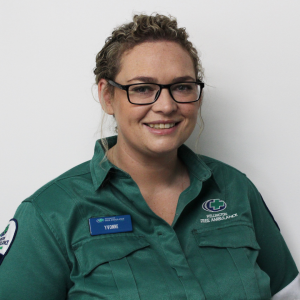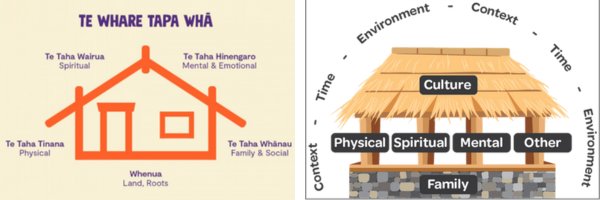About us
Our news
Mental Health Awareness Week 2023
Mental Health Awareness Week 2023
 15 September 2023
15 September 2023
Mental Health Awareness Week 2023
18 - 24 September is Mental Health Awareness Week. Looking after your physical health and mental health goes hand in hand, which is why we aim to support both the physical and mental wellbeing of our people and the people we have the privilege to care for.
In keeping with this year's theme of Five Ways, Five Ways (a set of proven tools to boost our mental health when we need it), we'll be introducing you to Wellington Free Ambulance staff who are here to support our people and also sharing how some of our people approach caring for their own mental health.
Me Aro Tonu / Take Notice - the practice of mindfulness
 In our line of work, we're often faced with stressful situations that can a toll on us physically and mentally. Here Patient Safety Advisor Abi talks about how she practices mindfulness in her own life:
In our line of work, we're often faced with stressful situations that can a toll on us physically and mentally. Here Patient Safety Advisor Abi talks about how she practices mindfulness in her own life:
“I take a break from what I’m doing. I am really lucky to have a supportive team, and often I find a brief chat with a work mate will get me back on track. When a social download doesn’t work, or I need something a bit more, I’ll head out for a walk either by myself or with a friend – fresh air has always helped! At home, I do the same. I talk it out with my husband, family, or friends, or I’ll head outside for a walk or just grab a breath of fresh air in my backyard.”
Me Kori Tonu / Be Active
 Being active is known to be a powerful mood booster. Here Senior Emergency Medical Calltaker and Health and Safety Committee Member Morgan shares some of her thoughts about the importance of being active and ways you can make it a daily habit:
Being active is known to be a powerful mood booster. Here Senior Emergency Medical Calltaker and Health and Safety Committee Member Morgan shares some of her thoughts about the importance of being active and ways you can make it a daily habit:
“Getting active can boost how we think, feel, and connect with the world. Our mind and body are incredibly well connected, so it’s important that we look after both. When we are desk bound for most of our working day, we need to put in some extra work to keep up a healthy balance.
If you want to get active, think about physical activity in the broadest sense. Physical activity can include sports and working out, but it can also be little things like stretching while at your desk or taking advantage of lunch breaks by going for a short walk."
Me Ako Tonu / Keep Learning
 Learning exercises our mind and learning new things is important for everyone, at every stage of life. That's why we're talking about two health models that may be new to you - Te Whare Tapa Whā (a health model that offers a Māori worldview) and Fonofale (a health model offers a collective Pasifika worldview).
Learning exercises our mind and learning new things is important for everyone, at every stage of life. That's why we're talking about two health models that may be new to you - Te Whare Tapa Whā (a health model that offers a Māori worldview) and Fonofale (a health model offers a collective Pasifika worldview).
Here Programme Lead - Māori and Equity, Yvonne provides a personal insight into Te Whare Tapa Whā:
"This Health Model means so much to me because I can relate to it so well. I have a journal that I fill in every day that keeps me in check with all four taha (sides) of the model. I know in myself that when one of these sides isn't doing so well, I feel it in other areas and therefore try to focus on that."
